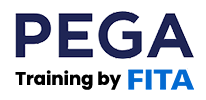
Landing a role in software testing starts with acing your interview. Whether you’re a fresher or an experienced tester, knowing the most asked manual testing interview questions can make all the difference. Employers expect candidates who combine strong theoretical knowledge with practical insights. If you’re looking to build this level of confidence, enrolling in a mentor-led Software Testing Classes in Mumbai can provide hands-on experience and prepare you for both manual and automation testing challenges.
Common Manual Testing Interview Questions for All Levels
1. What is Manual Testing and Why is it Important?
Manual testing involves executing test cases without automation tools to find defects in software. It ensures applications behave as expected from a user’s perspective.
2. Describe the Software Testing Cycle (STLC)
The STLC consists of phases like Requirement Analysis, Test Planning, Test Case Design, Environment Setup, Test Execution, and Test Closure. This is a critical component of many software testing interview questions for both new and seasoned candidates.
3. What are the Different Levels of Testing?
Unit Testing, Integration Evaluation, System Evaluation, and Acceptance Testing are all levels that make sure the program is of high quality at different phases of development.
4. What is Regression Testing?
Regression testing verifies that recent code changes haven’t disrupted existing functionalities. It’s critical in agile environments where updates are frequent.
Manual Testing Interview Questions for Experienced Testers
5. How Do You Prioritize Test Cases When Time Is Limited?
Prioritize based on critical business functions, high-risk areas, and frequently used features. This is a common manual testing interview question for experienced professionals.
6. Explain Boundary Value Analysis and Equivalence Partitioning
BVA focuses on values at the edges of input ranges, while Equivalence Partitioning divides data into valid and invalid partitions to optimize test coverage.
7. What Is the Defective Life Cycle?
It tracks the states of a defect from identification to closure: New, Assigned, Open, Fixed, Retest, Verified, and Closed.
8. How Do You Handle Changing Requirements During Testing?
By maintaining flexible test plans and updating test cases using a traceability matrix to align with new requirements. To handle such situations effectively in real-world projects, joining a comprehensive Software Testing Training in Kolkata can equip you with strategies that employers look for in QA professionals.
Scenario-Based Testing Interview Questions
9. How Do You Test a Login Page?
Cover valid/invalid inputs, empty fields, SQL injections, and session handling.
10. What’s the Difference Between Verification and Validation?
Verification ensures the software meets specified requirements, while validation checks if it satisfies user needs.
11. Explain Usability Testing
Focus on user-friendliness, navigation, accessibility, and overall user experience, often with real-user feedback sessions.
12. What Is Ad Hoc and Exploratory Testing?
Ad hoc testing is informal, whereas exploratory testing combines learning, test design, and execution to find unanticipated flaws.
Advanced Manual Testing Interview Questions
13. What Are Entry and Exit Criteria in Testing?
Entry criteria define when testing begins, and exit criteria define when testing ends based on pre-set conditions. This is a frequent interview question for manual testing positions. If your goal is to advance quickly, a practical, project-based Software Testing Courses in Trivandrum is a smart way to gain skills that align with industry demands.
14. How Do You Ensure Complete Test Coverage?
Use a Requirement Traceability Matrix (RTM) to ensure that all functional requirements are addressed by test cases.
15. Difference Between Smoke and Sanity Testing?
Smoke testing checks basic functionalities, while sanity testing verifies specific fixes or changes.
Why Preparing for Manual Testing Interviews Matters
Mastering these manual testing interview questions builds your confidence for any testing role. It also helps you understand where manual and automation testing intersect in modern workflows. Additionally, preparing for interviews allows you to showcase soft skills like communication, analytical thinking, and teamwork, all essential traits for a successful QA career. Investing time in mock interviews, exploring complex test scenarios, and understanding industry best practices makes your answers precise and impressive.
Be Ready for Your Next Interview
Strong preparation and hands-on knowledge are key to succeeding in interviews. By practicing answers to these testing interview questions, you can impress interviewers and show them you’re ready for real-world challenges. To gain practical exposure and learn advanced testing techniques, consider enrolling in the Software Testing Courses in Kochi program. It’s your step toward becoming a confident and highly employable QA professional.
Also Check: Tools for Integration Testing in Software Engineering
